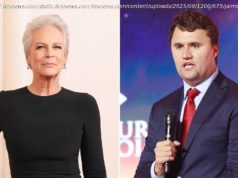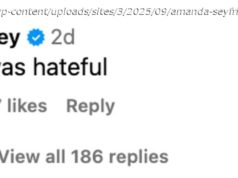Film critic Justin Chang’s diary of the 2017 Toronto International Film Festival.
DAY 1 | 2 | 3 | 4 | 5 | 6 | 7
Day 1 | Sept. 7
For better and for worse, the Toronto International Film Festival is an event that invites bold predictions, most of them involving the months-long industry and media grind that we call awards season. Four years ago, Steve McQueen’s “12 Years a Slave” so galvanized audiences here that a number of journalists declared the race for the best picture Oscar effectively over. (They were right.) It’s still too early in this year’s 42nd annual festival for anyone to have made a similar declaration yet, although a few tantalizing narratives have already begun to surface.
One of these is the widespread adoration of “Call Me by Your Name, ” Luca Guadagnino’s intoxicating coming-of-age love story, which has enraptured festival audiences (myself included) since its first screenings at Sundance. Its spell showed no signs of abating in Toronto, where it screened for a public audience on Thursday night, with Guadagnino in attendance with his stars Timothée Chalamet and Armie Hammer.
And speaking of actors, in the next few days festival-goers will spend minutes in line parsing the Oscar prospects of overdue stars like Gary Oldman and Annette Bening, whose respective films, “Darkest Hour” and “Film Stars Don’ t Die in Liverpool, ” are set to screen here after making their festival debuts in Telluride, Colo., last week.
Oscar buzz has become a necessary evil at Toronto. On one hand it ensures the packed houses, bustling red carpets and gobs of press coverage that keep this festival running year after year. But it also inevitably overshadows the many, many worthy films that arrive here with no media profile or awards prospects of which to speak, and which have little hope of finding a commercial audience anywhere near as sizable or enthusiastic as the up-for-anything crowds packing Toronto screening venues this week.
First presented last week in competition at the Venice Film Festival, “Ex Libris” screened Thursday for press and industry audiences in Toronto, or at least the handful who were willing to set aside three hours and 17 minutes for an impassioned deep-dive portrait of an invaluable institution. Limiting himself to 11 of the New York Public Library’s 92 branches, and returning continually to its fabled flagship building on Fifth Avenue opposite East 41st Street, Wiseman sifts through lectures, classes, Q&As, policy meetings, tutoring sessions and stage performances to build a mighty case for the library as the city’s social and intellectual lifeblood.
From an onstage conversation with Elvis Costello to a community discussion of the misrepresentation of slavery in McGraw-Hill textbooks to a Gabriel Garciá Márquez book group so smart and impassioned that I wanted to sign up for it immediately, “Ex Libris” demonstrates Wiseman’s usual genius at constructing a mosaic of the quotidian. As always, we are never with any one story for very long, although there are a few threads to which the film keeps returning, none more significant than a staff meeting to determine how best to digitize the library’s materials and boost online use in a city where many New Yorkers still don’ t have access to the Internet.
“Libraries are not about books, ” one observer notes. “Libraries are about people.” And because Wiseman’s cinema has always concerned itself with people — people at work, people in conversation, people helping others, people trying to better themselves — it would be hard to imagine a more fitting alchemy of filmmaker and subject. His films have always been, to some degree, about the pursuit of knowledge, a fact that gives “Ex Libris” the feel of an epic career summation.
It would also be hard to imagine a subtler or more devastating rebuke of the anti-intellectualism embodied by the Trump administration, which has spent much of the past year threatening the funding of arts and cultural institutions nationwide, libraries included. “Ex Libris, ” which opens in theaters later this month through Zipporah Films, offers a troubling reminder of what we stand to lose if greedy, short-sighted policies are allowed to prevail. But the movie is the opposite of pessimistic: It suggests that the desire for knowledge, creativity and community is its own sustaining, revitalizing impulse.
The festivities got off to a slick, serviceable start on Thursday night with the official opening-night selection, “Borg/McEnroe, ” a slick, lightweight dramatization of the nail-biting 1980 Wimbledon showdown between those powerhouse players, Björn Borg and John McEnroe. Directed by the Danish-born Janus Metz, it’s one of a few films this year that suggest TIFF might as well temporarily change its name to the Tennis International Film Festival; the others include “Battle of the Sexes, ” starring Emma Stone and Steve Carell as Billie Jean King and Bobby Riggs, respectively, and “Love Means Zero, ” Jason Kohn’s documentary about the legacy of star tennis coach Nick Bollettieri.
At times suggesting a less adrenalized version of Ron Howard’s Formula One rivalry saga, “Rush” (2013) , “Borg/McEnroe” is an involving if low-impact study in emotional contrasts. Cross-cutting between his protagonists in precise, well-targeted editorial volleys, with occasional flashbacks to their respective troubled childhoods, Metz shows how the cool, calculating Swedish stud and the foul-mouthed American hothead may have had more inner demons in common than you might expect.
That tidy psychological construct is reinforced by fine performances from the Swedish-born Icelandic actor Sverrir Gudnason, whose brooding affect captures the machine-like precision and emotional containment that defined Borg’s behavior on (and mostly off) the court, and from Stellan Skarsgard as Borg’s long-suffering coach, Lennart Bergelin. And Shia LaBeouf, always an erratic talent, acquits himself nicely, or not so nicely, as McEnroe; there’s something fitting about enlisting one notoriously filter-free bad boy to play another.
There have been far better and far worse TIFF opening-night movies than “Borg/McEnroe, ” which is fast-paced, inoffensive and about as emotionally resonant as your next poutine. But few have been more emblematic of the reality that film festivals have become their own competitive sport — a kind of cinephile Grand Slam.
The year begins with Sundance and Berlin, both held shortly after the Australian Open in January, then builds to the Gallic prestige of Cannes in May, right before the French Open. There may be no Wimbledon equivalent on the festival calendar, but the U. S. Open works overtime to make up the difference, falling at roughly the same time as Venice, Telluride and Toronto.
And of course, that fall trifecta constitutes a competition unto itself, one that threatened to turn nasty three years ago when Toronto, irked by Telluride’s early access to some of the season’s most coveted films, sought to impose a penalty of sorts by restricting all Telluride-screened titles from screening the first weekend of TIFF.
Start
United States
USA — Cinema Toronto: With 'Ex Libris, ' have we already seen the festival's best...






